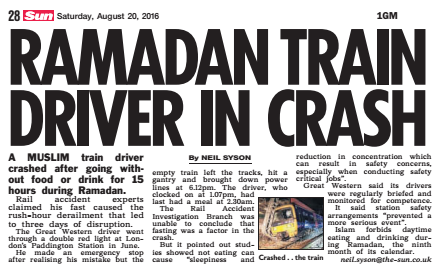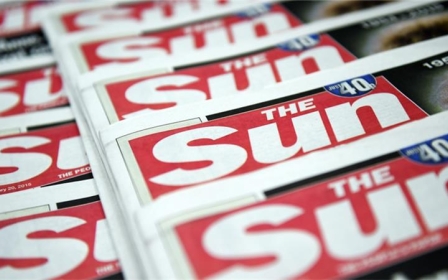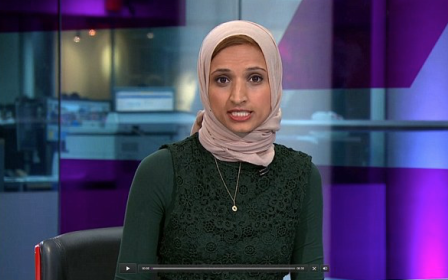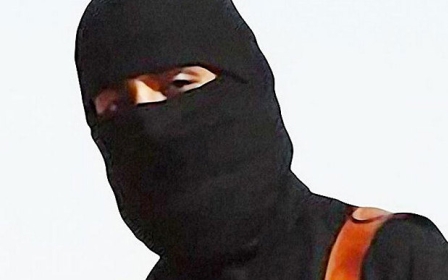Sun apologises for misleading 'Ramadan train wreck' headline
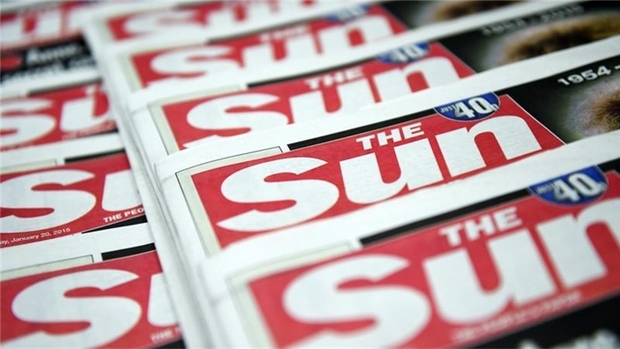
A British tabloid newspaper has been forced to apologise for a headline that claimed a train crash was caused by the driver fasting during the Muslim holy month of Ramadan.
The retraction came after a complaint was submitted to the Independent Press Standards Organisation (IPSO) against the Sun newspaper by a senior member of the Muslim Council of Britain.
The article was published online under the headline “RAMADAN TRAIN WRECK Muslim train driver crashed after going without food or drink for 15 hours during Ramadan".
Miqdaad Versi, who is a consultant and the assistant secretary general of the MCB, submitted the complaint about the controversial report, which stated: "Rail accident experts claimed his [the driver's] fast caused the rush-hour derailment that led to three days of disruption."
The story followed a train crash in London on 16 June 2016 in which the driver happened to be a Muslim who was fasting.
Despite the claim made by the Sun, the Rail Accident Investigation Branch (RAIB), the body tasked with investigating the train crash, concluded that it was “unable to determine whether this interruption to his sleep, and subsequent fasting, was a factor in what happened on this occasion.”
IPSO ruled that the complaint was upheld and concluded that the headline was a “misleading statement” that breached clause one of the editor’s code of practice, which focuses on accuracy in reporting.
Asserting that the “misleading statement resulted from a failure to accurately interpret the RAIB report,” IPSO ruled that the Sun newspaper showed “a failure to take care not to publish misleading information, in breach of Clause 1 (ii).”
Clause 1 states that: "The Press must take care not to publish inaccurate, misleading or distorted information or images, including headlines not supported by the text."
Versi, who filed the complaint, told Middle East Eye: “Creating a link to the faith of the driver and the Islamic act of fasting without any evidence is totally unacceptable.”
He also added: “In today’s environment where Islamophobia and bigotry have become more and more normalised, I hope the Sun will avoid creating stories that unfairly depict Muslims as the ‘bad guy’ and will introduce safeguards to deter future inaccuracies.”
The Sun in response to the complaint removed the article permanently from its website and issued a correction stating that the newspaper was “unable to conclude that fasting was a factor in the crash on evidence available,” despite research that showed how “fasting can affect people’s concentration levels".
The tabloid has a long track record for retracting controversial headlines about Muslims after receiving complaints via the press complaints body.
Earlier this year, the paper was forced to retract another headline that claimed that honour killings were “Islamic” after another complaint made by Versi.
The paper was also forced to admit that a headline was "significantly misleading" after it claimed that “1 in 5 Brit Muslims” had sympathy for the Islamic State group.
New MEE newsletter: Jerusalem Dispatch
Sign up to get the latest insights and analysis on Israel-Palestine, alongside Turkey Unpacked and other MEE newsletters
Middle East Eye delivers independent and unrivalled coverage and analysis of the Middle East, North Africa and beyond. To learn more about republishing this content and the associated fees, please fill out this form. More about MEE can be found here.


